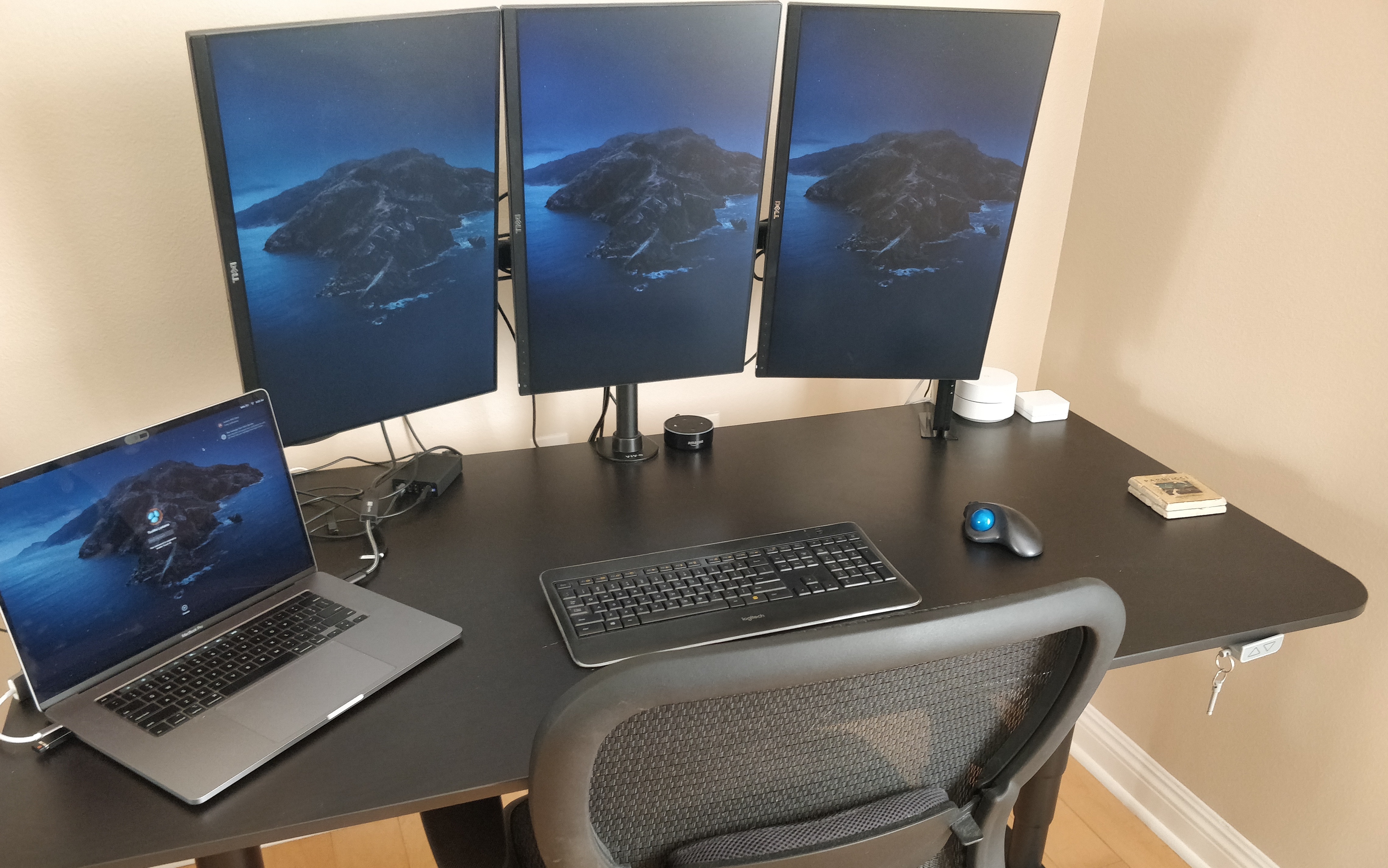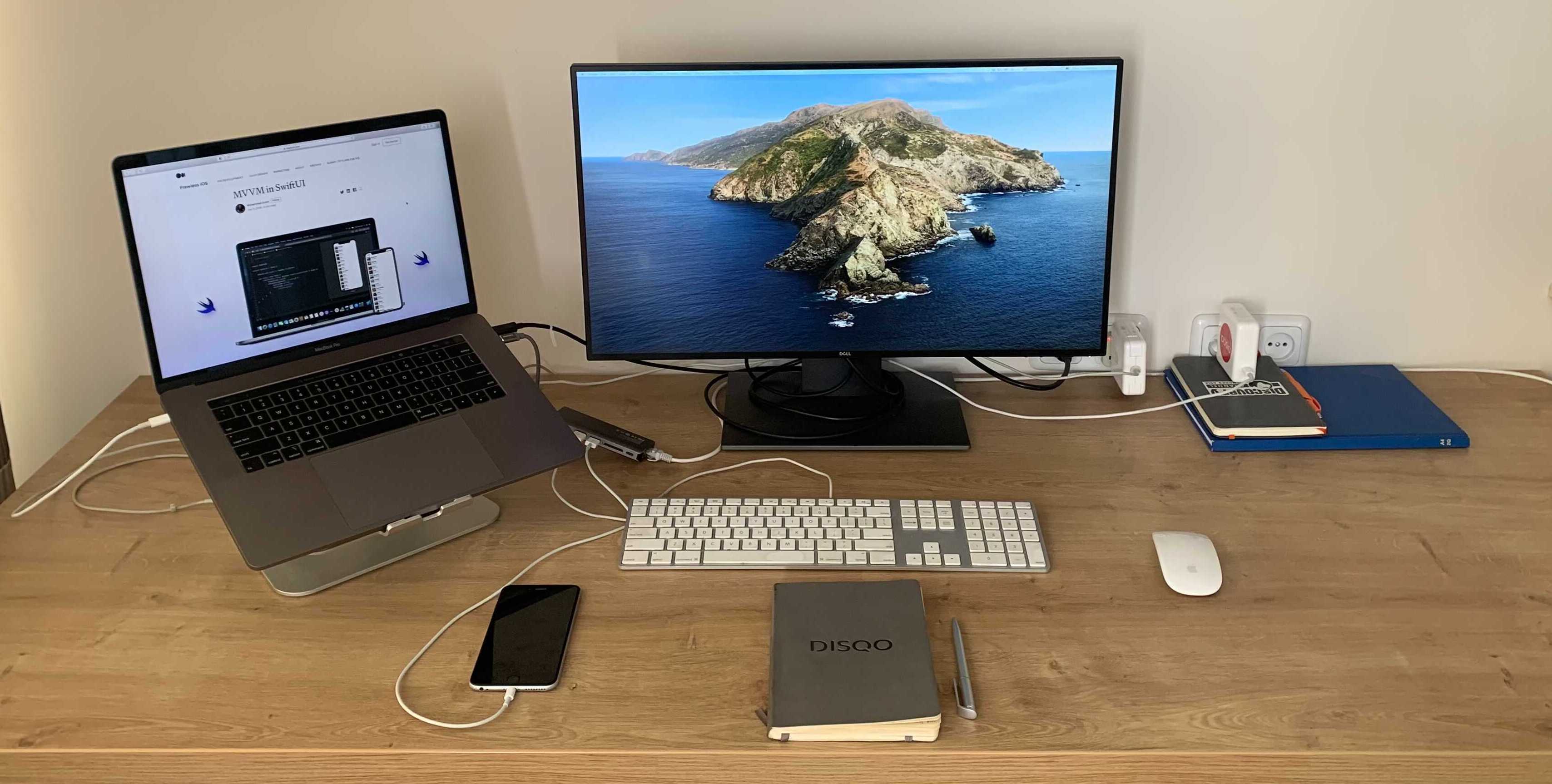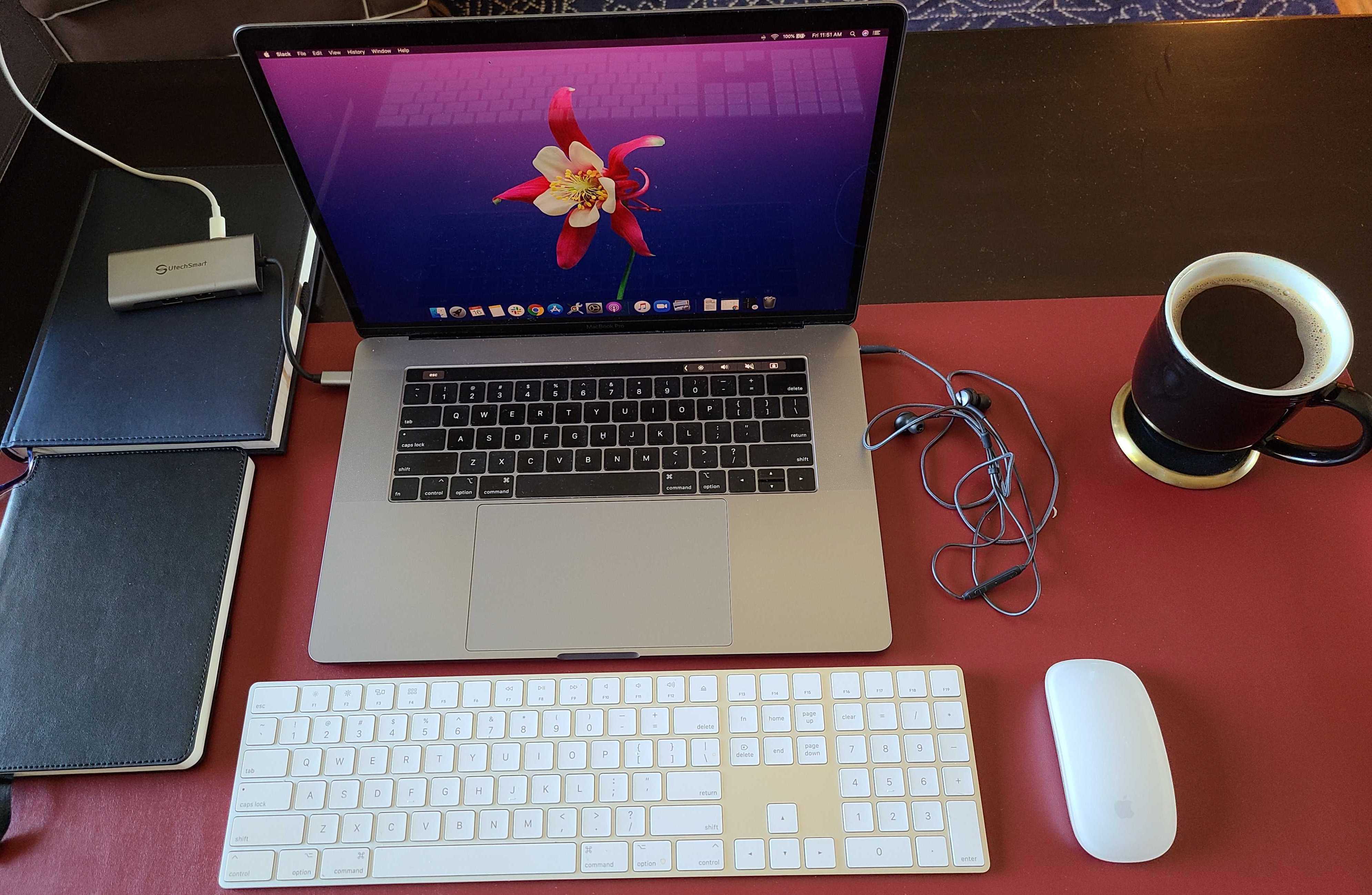About six months ago, we all began working remotely to help curb the spread of COVID-19. Now that we’ve been working from home for over six months, we thought it would be a good idea to talk about how our day-to-day has changed.
DISQO has been tight-knit and people-focused since before our move to work-from-home, and that still rings true as we walked away from our in-office desks and into our makeshift home offices. We wanted to highlight the ways in which we’ve adapted our culture, continuing our strong interconnectedness in the midst of a global pandemic.
We discussed this topic previously when we first started working remotely, and you can read our previous article. This time, I spoke to six members from our tech department with roles in Program Management, Engineering, Data Analytics, Data Science, and Engineering Management. Each of these individuals expressed a different experience at home and shared unique insight.
The Day-to-Day of Working From Home
It took some adjustment to change from working from the office to working fully remotely overnight. As mobile Senior Software Engineer Davit Siradeghyan put it, “after the first month of adapting to the new normal, my day and work became more organized.”
“[Getting requests at all times of the day] forced me to develop a more organized daily and weekly schedule to keep me on the right track.” - Data Analyst Natasha Wijaya
A couple of individuals spoke about the changes they’ve made to their schedules. Mary Hakobyan, a Data Scientist from our Armenia team, has adapted from working regular hours to breaking up her day to accommodate both her Armenian and American colleagues’ schedules. She says, “it was hard at the beginning. I didn’t appreciate the amount of freedom I had with my time. Now, I walk my dog and prepare some food at midday. That makes my working schedule a bit weird and long. But since I’m working on an international team, it’s more convenient given that I have working hours that coincide with my American team members’ hours.”

Software Engineering Manager Tuukka, who’s been working from home for years, is fully equipped with three vertical monitors.
Natasha Wijaya, a Data Analyst based in the U.S. also talked about schedule flexibility. “From what I observed, during work from home, more people are working non-regular working hours” and “now requests/tasks are coming to us at any time of the day, late at night, even on weekends, which kind of shifts my working hours to be more flexible than before,” she says. In response to the changes she’s had to make, she continues, “this forced me to develop a more organized daily and weekly schedule to keep me on the right track.”
Others at DISQO were used to working from home, like Tuukka Luolamo, the Engineering Manager for our Purple Electric Penguins team. He’s been working from home for the past year and a half and started at DISQO during the pandemic. He says working from home hasn’t been much of a change for him.
Kunal Karandikar, our Senior Technical Program Manager, had the unique experience of starting at DISQO in December, several months before we began working remotely full-time. He says this time was invaluable in developing relationships, understanding the organization structure, and taking advantage of traditional, face-to-face onboarding.
According to him, the key to our success in transitioning to work from home was establishing some expectations early on. These expectations are the propensity for overcommunication, establishing the norm of camera-on for all meetings, and relying on our calendars to ensure that we have our necessary interactions scheduled out. He reinforces that through our work from home culture now, it’s essential for us to amplify our connections and retain the human bonds we have.
Alejandro Landeros, a Senior Software Engineer on our Purple Electric Penguins team, says he’s glad he invested in a sit-stand desk that allows him to alternate sitting and standing throughout the day. And though he has one desk for his gaming set-up that doubles up as his work desk, he says he doesn’t cross equipment. Making a distinction between work and personal computer equipment helps him “stay focused on work”.
The New Team Dynamics
Each team has developed methods for coping and excelling as a group of individuals with a common purpose. Mary says, “we dove into the process of working remotely pretty smoothly because of our managers and coworkers who made sure we see each other virtually often. We have virtual coffee breaks together, daily sync ups, and pair programming sessions that keep the team united and motivated.”
Natasha says “our team has now started to create more detailed reports and documentation on things we are working on as it helps the team understand the things others are working on, and what new projects are coming.” She also says meetings have become significantly more important, since projects now require more concerted collaboration.
“…we have a virtual room where people jump on and off throughout the day, and sometimes we sneak in a game of Super Smash Bros during lunch.” - Senior Software Engineer Alejandro Landeros
The Purple Electric Penguins, a tight-knit group of engineers working on the Survey Junkie product, have found a way to balance work and play. Alejandro says, “when we started working from home, we had to get used to meeting after meeting. We have many more meetings now than we did before, and we’re now used to it. For the social aspect, at the daily standup, we have a virtual room where people jump on and off throughout the day, and sometimes we sneak in a game of Super Smash Bros during lunch. When the day’s winding down around 6 pm, we switch gears in our conversations, and that kind of marks the end of the workday for us.”

Senior Software Engineer Davit’s desk is clutter-free for optimal concentration.
Kunal surfaced the notion that a lot of the work culture from home has to do with trusting your team and knowing that you can rely on them, and they can rely on you. He says, “the work from home dynamic has encouraged me to be more trusting of my colleagues and management by communicating when I’ll be unavailable. Trusting and understanding have been more imperative.”
Some of our teams work more cross-functionally than others. For example, Kunal’s role requires that he work with various people across the organization to make sure that goals are being recorded and reached. He says, “my role in Program Management relies on cross-functional management, so I meet with engineers, leadership, product managers, and I build and drive consensus for issues across time zones. We emphasize over-communication, face-to-face communication, and making personal sacrifices like starting our days earlier or working late into the night to ensure that the right people are on the call.”
Working from Home and Personal Development
Working from home has offered some employees a unique opportunity to work on personal development. The DISQO culture emphasizes personal growth and produces accountability through personal development OKRs. These are goals that individuals and their managers work to come up with together.
Tuukka says his “self-development has been significantly increased due to the extra time I have due to not having to sit in traffic commuting to and back from the office. I’ve completed five certificates and learned a number of new technologies and skills faster than I would have been able to before since I started working from home 100% of the time.”
Davit says that the “first one to two months of working remote wasn’t productive in terms of self-development. Later, I started to allocate time for self-learning regularly. For example, I decided to learn Swift UI. Next, taking into account my solid experience as a C++ developer, I decided to learn Java. A few weeks ago, I finished a book on it, and now want to practice. Since this process was so productive, I was able to share the new things I learned with my colleagues.”
“The need and discipline of time management have forced me to identify what’s missing in my skill set and allowed me to dedicate portions of my day to personal development.” - Senior Technical Program Manager Kunal Karandikar
Kunal has cut out two hours a day of commuting. Regarding his personal development, he says, “The need and discipline of time management have forced me to identify what’s missing in my skill set and allowed me to dedicate portions of my day to personal development.”

Data Analyst Natasha is ready to work using her track pad, mouse, external monitor, and full-to-the-brim cup of coffee.
On a similar note, Natasha says this time “has given me more time to do self-reflection, and I’ve had more 1-on-1 meetings with my manager, Vera, who also helped me to really focus on progressing in my career and self-development. As I have more free time during quarantine, I did quite a lot of self-evaluation every month on things I have achieved, things I can improve on, and things I would like to explore.”
Alejandro says that being at home helps him focus, since “there aren’t as many distractions at home as opposed to in the office.” He’s been setting time blocks to work and disconnecting from Slack periodically to work an hour or two without distractions. Alejandro says that when it comes to personal development, “I do love solving puzzles, so I think about ways to improve our application. I come up with some cool ideas from time-to-time. My personal goal was to deploy an application at the company with the golang language. And we’re working towards that.”
WFH Tips from Our Team
Kunal says time management is vital during this time. You need to break down your day. His tactic is front-loading meetings that he knows will have work associated with them so that he has a window of time afterward to work on deliverables. Kunal has identified what time of the day he’s most alert and productive, so he reconfigures his day to ensure those times focus on productive tasks.

Senior Technical Program Manager Kunal keeps it simple and streamlined with an external keyboard and mouse.
Also, he says, “be accommodating, be flexible,” and “upgrade your internet, especially if you’re sharing it.” He mentioned that early on, as the organization helped us all transition to work from home, they tacked on an allowance on our paychecks to cover some of our internet expenses.
Overall, we’ve all adapted to working from home in different ways. And as an organization, we were set up to succeed. As new challenges arise, we continue to modify how we work, and we hold onto the human element of work that gets us turning on our cameras during meetings, waking up earlier to meet with our colleagues across the world, and being flexible about the daily unknowns that inevitably arise as we work from home.